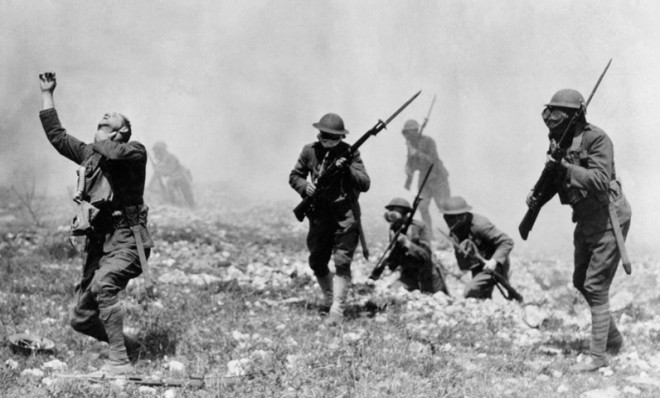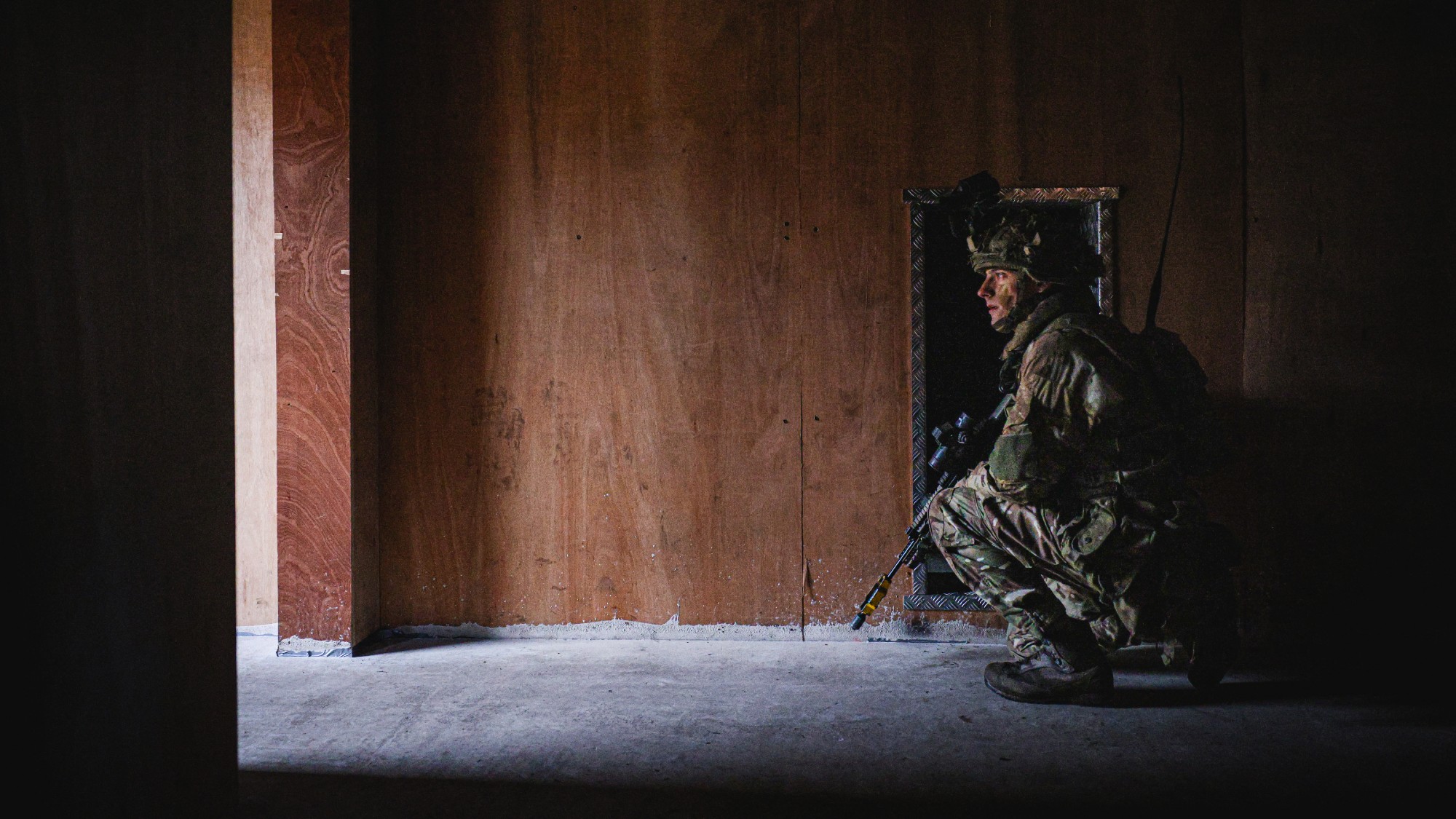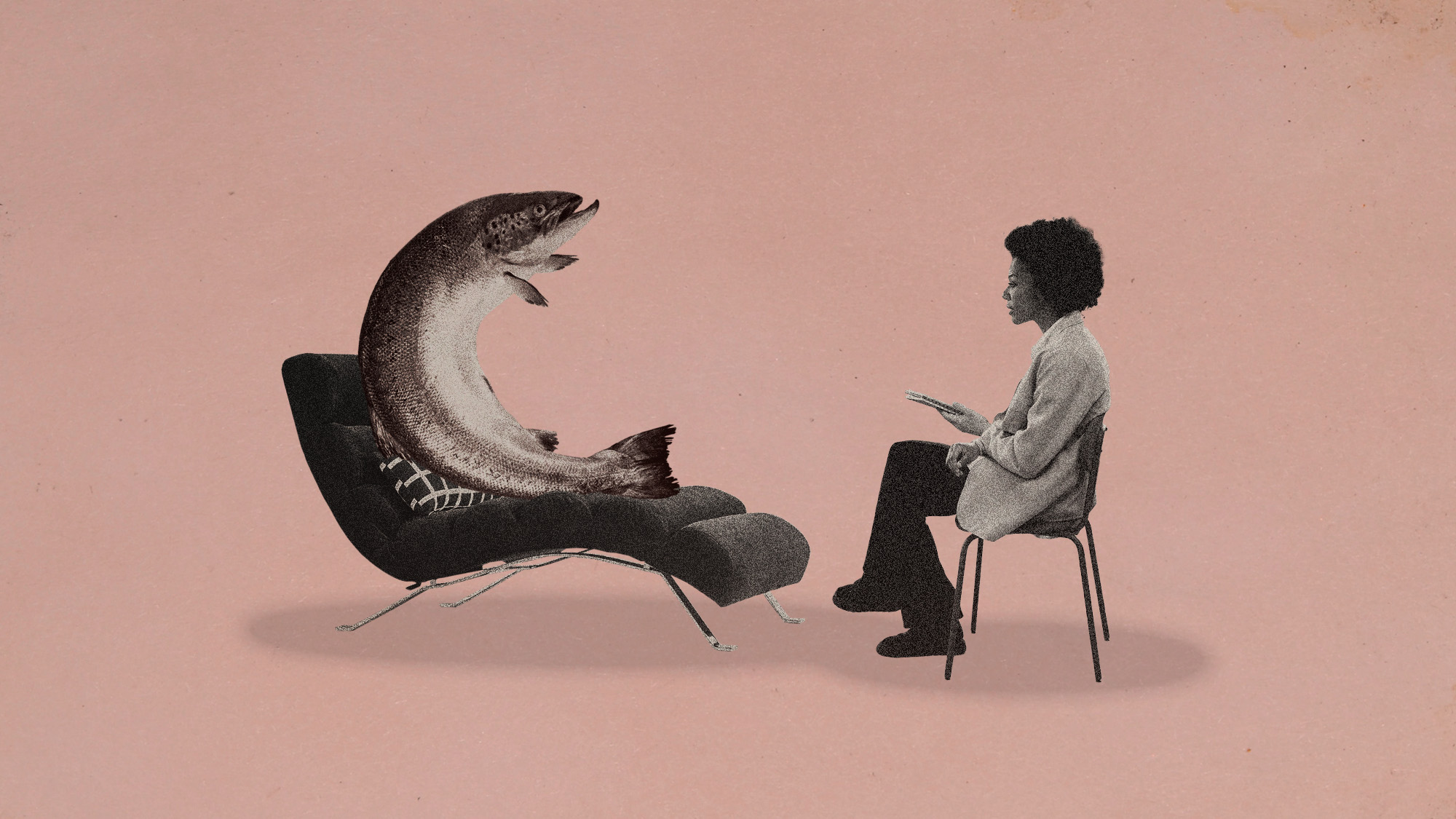A brief history of chemical warfare
It at all started around 600 B.C.


How long have poisonous weapons been used?
For more than 2,000 years. As early as 600 B.C., the Athenians poisoned the wells of the Spartans, who later tried lobbing burning sulfur pitch over the walls of Athens, hoping to fill the city with toxic smoke. Genghis Khan used that same trick, catapulting burning sulfur pitch during his siege of fortified cities around A.D. 1200. Over the centuries, various armies put poisons on arrows and in bullets to make them more lethal. But it wasn't until the 19th and 20th centuries that mankind began developing toxins and poison gases of devastating lethality, including mustard gas, chlorine, and the nerve gas sarin. Even before these gases were used in war, they created a special kind of fear and moral revulsion.
What makes these weapons different?
Subscribe to The Week
Escape your echo chamber. Get the facts behind the news, plus analysis from multiple perspectives.

Sign up for The Week's Free Newsletters
From our morning news briefing to a weekly Good News Newsletter, get the best of The Week delivered directly to your inbox.
From our morning news briefing to a weekly Good News Newsletter, get the best of The Week delivered directly to your inbox.
In a literal sense, they're not, since the goal of warfare is to kill lots of people in an efficient way. Bombs, missiles, and other munitions achieve very similar results, especially when dropped on civilian areas. But chemical weapons evoke a strong emotional response, perhaps because they can be invisible, and victims often suffer slow and agonizing deaths, convulsing and gasping for breath. "This 'chemical weapons taboo' appears to have originated in the innate human aversion to poisonous substances," says Jonathan Tucker, author of a history of chemical weapons. Tucker says that established nations also look at such weapons as cowardly and ignoble — as a "duplicitous use of poison by the weak to defeat the strong without a fair physical fight."
When were chemical weapons banned?
As societies became capable of manufacturing large quantities of poison chemicals, there were repeated attempts to make the use of them taboo. In 1874, European nations attending the Brussels Convention on the rules of war called for — but did not approve — a ban on the "employment of poison or poisoned weapons." In 1899, major Western nations participating in the Hague Peace Conference went further, approving an agreement to prohibit the firing of any projectiles "the sole object of which is the diffusion of asphyxiating or deleterious gases." The ban didn't stand long.
What happened?
Sign up for Today's Best Articles in your inbox
A free daily email with the biggest news stories of the day – and the best features from TheWeek.com
World War I. On April 22, 1915, Germany attacked Allied troops outside Ypres, Belgium, with chlorine gas. It was the first time a lethal gas had been used on a large scale in a modern war. "Suddenly we saw... this yellow wall moving quite slowly towards our lines," recounted Archibald James of the Royal Flying Corps. "We hadn't any idea what it was." French soldiers were enveloped by the gas, and began choking. Many made the mistake of diving for cover at the bottom of their trenches, where the gas — heavier than air — collected in a lethal cloud. When it was over, British soldier Lendon Payne said, the Allied line "was absolutely covered with bodies of gassed men. Must have been over 1,000 of them."
How did the world react?
The Allies saw how effective gases could be, and started using them. Both sides went on to use phosgene, a choking agent, and mustard gas, which causes painful burns and blisters. By the end of the Great War — dubbed by historians "the chemists' war" — more than 90,000 soldiers had been killed by poison gas, many succumbing only after days or weeks of agony. A million more were injured — many blinded for life. The world's horror led the League of Nations in 1925 to draft the Geneva Protocol, banning chemical weapons in war and declaring that their use "has been justly condemned by the general opinion of the civilized world." Most nations signed on (though the U.S. did not until 1975).
Did the Protocol end their use?
No, but it effectively stigmatized them so that only rogue nations have used them since. Even the Nazis — who used gas to murder prisoners en masse in concentration camps — never unleashed gases on the battlefield. Still, the Geneva Protocol only banned using chemical weapons in war; it did not prohibit countries from producing and stockpiling them, and countries, including the U.S., did just that for decades, to serve as a deterrent to other nations. Only after the Cold War ended did the U.S. and the Soviet Union sign the Chemical Weapons Convention, and begin to slowly incinerate their vast storehouses of chemical weapons.
Why did Syria get them?
Syria began stockpiling chemical weapons in the 1970s and '80s, after losing three consecutive wars to Israel. The Syrians saw chemical weapons — which have been called "the poor man's nuclear weapon'' — as a last resort to counter Israel's military superiority and nuclear arsenal. Syria has been steadily manufacturing chemical weapons ever since. Intelligence services have estimated Syria's stockpile at 1,000 tons of chemical weapons, stashed in 50 facilities. Syria, says former Pentagon official Steven Bucci, has become "the superpower of chemical weapons." With its back against the wall, the regime has proven its willingness to use them.
When Saddam was our friend
Saddam Hussein enjoyed U.S. support in his long war with Iran in the 1980s — even after Iraq repeatedly used chemical weapons. Iraq used mustard gas against the Iranians in 1983, with no objection from the Reagan administration. In 1987, Foreign Policy magazine reported last week, the U.S. gave Saddam intelligence that an Iranian invasion was imminent at a hole in Iraq's defenses. "An Iranian victory is unacceptable," President Reagan wrote on an intelligence report. In response to the U.S. warning, Saddam repeatedly attacked Iranian forces with sarin, killing more than 20,000 and injuring thousands more. He later used sarin to kill more than 5,000 Kurds to put down an uprising in northern Iraq. Retired Air Force Col. Rick Francona, who was military attaché in Baghdad during the 1988 attacks, told Foreign Policy that the U.S. chose to ignore Saddam's use of chemical weapons because Iraq was seen as the lesser of two evils. "The Iraqis never told us that they intended to use nerve gas," Francona said. "They didn't have to. We already knew."
Harold Maass is a contributing editor at The Week. He has been writing for The Week since the 2001 debut of the U.S. print edition and served as editor of TheWeek.com when it launched in 2008. Harold started his career as a newspaper reporter in South Florida and Haiti. He has previously worked for a variety of news outlets, including The Miami Herald, ABC News and Fox News, and for several years wrote a daily roundup of financial news for The Week and Yahoo Finance.
-
 The state of Britain's Armed Forces
The state of Britain's Armed ForcesThe Explainer Geopolitical unrest and the unreliability of the Trump administration have led to a frantic re-evaluation of the UK's military capabilities
By The Week UK
-
 Anti-anxiety drug has a not-too-surprising effect on fish
Anti-anxiety drug has a not-too-surprising effect on fishUnder the radar The fish act bolder and riskier
By Devika Rao, The Week US
-
 Sudoku medium: April 21, 2025
Sudoku medium: April 21, 2025The Week's daily medium sudoku puzzle
By The Week Staff